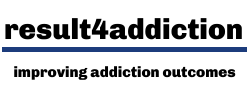What is recovery?
60-80% of people recover from their addiction without professional help. There are many different ways that people change their thinking and behaviour around substance use or other addictive habits. Most people become addicted because they like drinking or taking drugs - when they stop liking it they start to think about change. For people whose addiction serves a purpose, for example it helps coping with depression or with being unemployed or having poor housing, it is more difficult to get out of the addiction and the need for professional help is more likely.
What does recovery mean?
Recovery is about lifestyle change - ‘being better’ or being back to the ‘old you’. People in recovery know what it is about as do their family and friends. Recovery is associated with twelve step approaches, but whether it necessarily includes abstinence is controversial, nonetheless the Betty Ford Institute has produced this definition: "Recovery from substance dependence is a voluntarily maintained lifestyle characterised by sobriety, personal health, and citizenship". In the UK the idea of sobriety is controversial and a different definition has been proposed: “The process of recovery from problematic substance use is characterised by voluntarily-sustained control over substance use which maximises health and wellbeing and participation in the rights, roles and responsibilities of society”. Recovery that occurs in the absence of help-seeking is called natural recovery.
Naturally occurring events linked to reovery
People often move in and out of addiction before reaching stable abstinence or social substance use. Commonly cited reasons are...
▶︎ growing out of it
▶︎ an important relationship
▶︎ a change of employment - especially if it brings more responsibility
▶︎ joining a religious group - especially if substance use is prohibited
▶︎ taking up activities incompatible with substance use - for example sport
▶︎ health problems
Scott Kellog is an Addiction Psychologist in New York
Are outcome and recovery the same thing?
An outcome is the result of an active intervention, such as a treatment programme or joining a self help group, or something more naturally occurring, such as getting older or a new relationship. It is a statement of how things look at a particular time whereas recovery is an end point to aim for regardless of how to get there. There may be more than one outcome that matters depending on who is asking. People recovering from addiction and their family and friends tend to emphasise substance use. Other stakeholders are likely to stress their area of interest: for example addiction therapists are interested in a person's quality of life, social workers are interested in child protection, politicians are interested in costs and the public health. If you are interested in outcomes have a look at these…
Measuring outcomes
In addiction most outcomes are measured by rating scales which are self completed or rated by a practitioner. Points to watch out for are...
◉ What is the timeframe of the scale? eg last week, month or year
◉ When are ratings made? eg start or finish of an intervention
◉ What do the scores mean?
Some things can be measured directly (biomedical measures) and used as an outcome.Examples in addiction are...
◉ Blood tests of liver function
◉ Urine, hair or saliva tests for drug use - toxicology screening
◉ Blood tests for viruses - hepatitis, HIV
Use the Addiction Recovery Questionnaire (ARQ) to measure recovery



